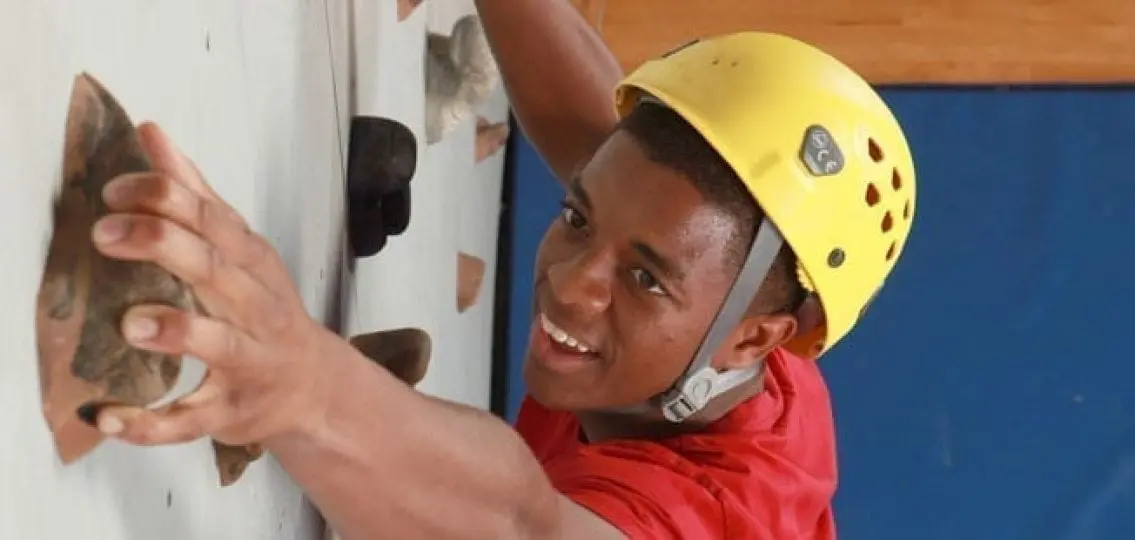Picture two small boats sailing on a stormy sea. A monster wave swamps them, and they both go under. One boat sinks to the bottom, while the other pops back to the surface and continues on course.

This maritime metaphor vividly illustrates the essence of resilience and the different ways teens respond to adversity, says Dr. Michael Bradley, clinical psychologist and author of Crazy-Stressed: Saving Today’s Overwhelmed Teens with Love, Laughter and the Science of Resilience.
“Resilience is a kind of emotional buoyancy,” Bradley explains.
“People with resilience do suffer, they get hit, they get hurt, but they’re able to use a set of skills and assets to recover and continue their lives.” Every teenager—every person—will encounter frustrations and tragedies. The key, says Bradley, is not to let adversity turn into personal devastation.
Kids Need Hardship to Develop Resilience in the Teenage Years
We can’t—and shouldn’t try to—shield our kids from all hardship, because we parents can’t be resilient for our kids. Attaining a level of resilience is a fundamental step toward independence and adulthood. It’s about being able to adapt to inevitable negative events, such as family and relationship problems, serious health problems, or workplace and financial stressors, according to the American Pediatric Association.
“Resilience is critical because life isn’t going to be handed to you on a silver platter, and you’re not going to be protected and wrapped in a downy quilt throughout your life,” says Dr. Kenneth Ginsburg, a pediatrician who specializes in adolescent medicine at the Children’s Hospital of Philadelphia and author of Building Resilience in Children and Teens: Giving Kids Roots and Wings.
Model Resilience
None of us want our kids to fall apart at the first sign of trouble. Whether it’s a poor grade at school now or a romantic breakup, illness, or financial trouble later, we want our kids to be able to handle what life throws at them. But how?
If your teen isn’t resilient now, you can help. Some people might be born with a more natural tendency towards resilience, but “there’s no question that everybody can become more resilient,” Ginsburg says.
Perhaps the biggest role in developing resilience belongs to parents and other important adults who can model resilient behavior for teens in both their personal lives and parenting styles.
“When you have a fight with a colleague at work, or with your spouse, or you’ve had a bad day, what are you doing? Are you going to grab a drink? Or are you going to take a run, take a shower, and talk to a friend? You’re modeling coping strategies for them, and that’s so much more important than the words that you say.”
Everyone has uncomfortable emotions after a negative event—the key is whether and how we bring ourselves back to calm.
Kids will absorb whether, for example, we feel sad or angry and then collect ourselves with some deep breaths or a cup of tea, or whether we instead get emotionally stuck and ruminate on past events.
Although it may look like your teen is ignoring you, they are watching you handle difficult situations, and you have the chance to set a great example of resilience, Ginsburg says.
Stay Calm
Your choice of language also matters, Ginsburg adds. Overly dramatic language can make an unfortunate situation seem like a tragedy, so don’t catastrophize. For example, if your teen fails a test, instead of saying, “Oh no! That’s terrible!” say “I’m sorry,” and listen.
When worry dominates your parenting, you’re more likely to hover over your teens and overreact when things go wrong. But if you can take it in stride when your teen makes mistakes, you’ll show them what resilience looks like—it looks like calm confidence that you have faith in them to handle the difficult times.
When We Parents Get In Our Own Way
Today, helicopter parents tend to try to shield their teens, says Dr. Mark Goldstein, head of adolescent and young adult medicine at Massachusetts General Hospital. When parents prevent teens from experiencing setbacks and disappointment, it will be harder for them to learn how to cope and develop resilience. “Individuals can grow from learning to cope with defeat,” Goldstein says.
Bradley agrees that our desire to protect our kids can sometimes get in their way. “We don’t want our kids to ‘suffer like we did,’” he says. “We forgot that our suffering made us strong.”
Despite good intentions, parents who are overinvolved actually prevent their teens from acquiring resilience. When parents hover and try to cushion every fall, teens don’t learn how to pick themselves up, experts say.
It’s Never Too Late to Learn Resilience
Fortunately, it’s not too late for your teen to learn to bounce back—even if they’re no longer a younger teenager. In fact, the late teens and early 20s are a period of brisk brain development and new experiences, a fertile time for growth and change. This stage is often a window of opportunity for late bloomers, when “young people who get off track during adolescence often find their way back to success,” according to recent research in the pediatric journal Children.

“There may be no better way to prepare our children to be successful adults than to support their developing resilience,” says Ginsburg. “Resilient people don’t just handle adversity well, they thrive and get the most out of life in good times.”




